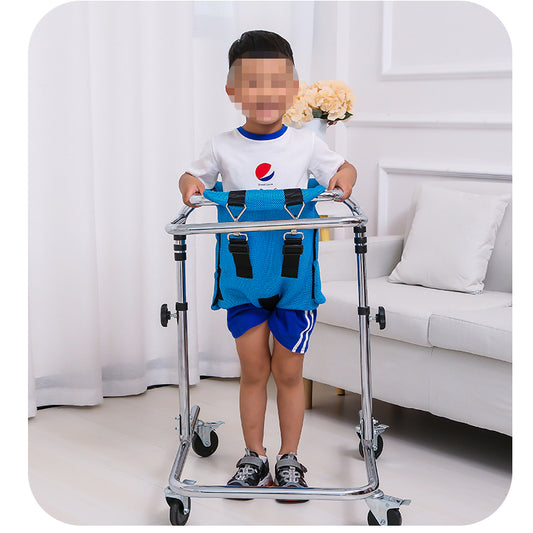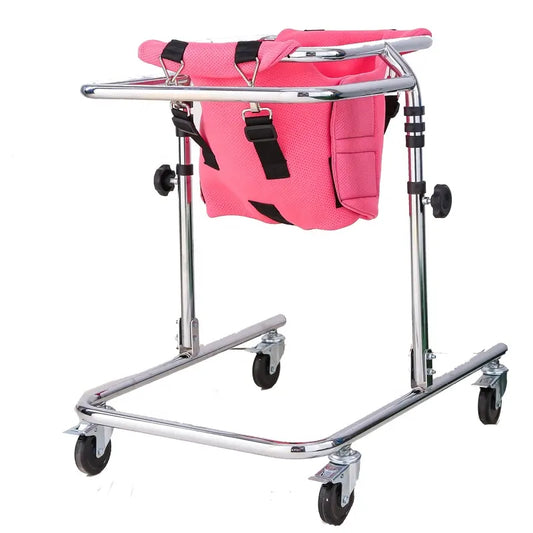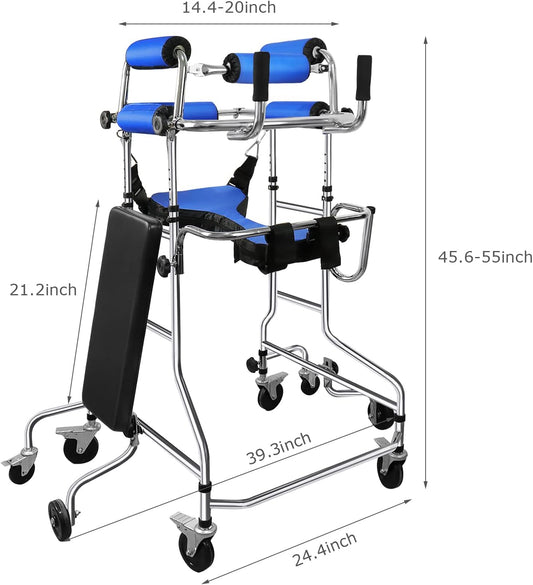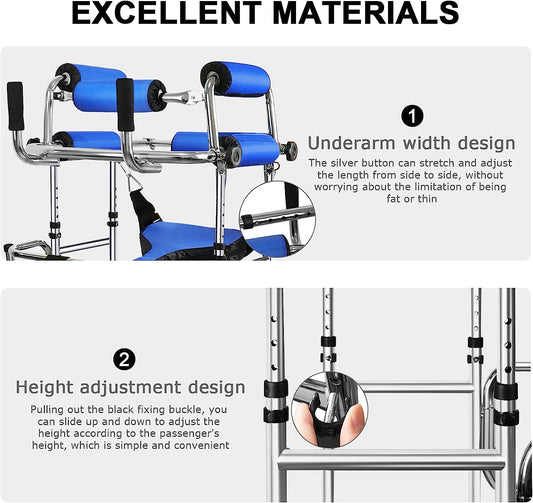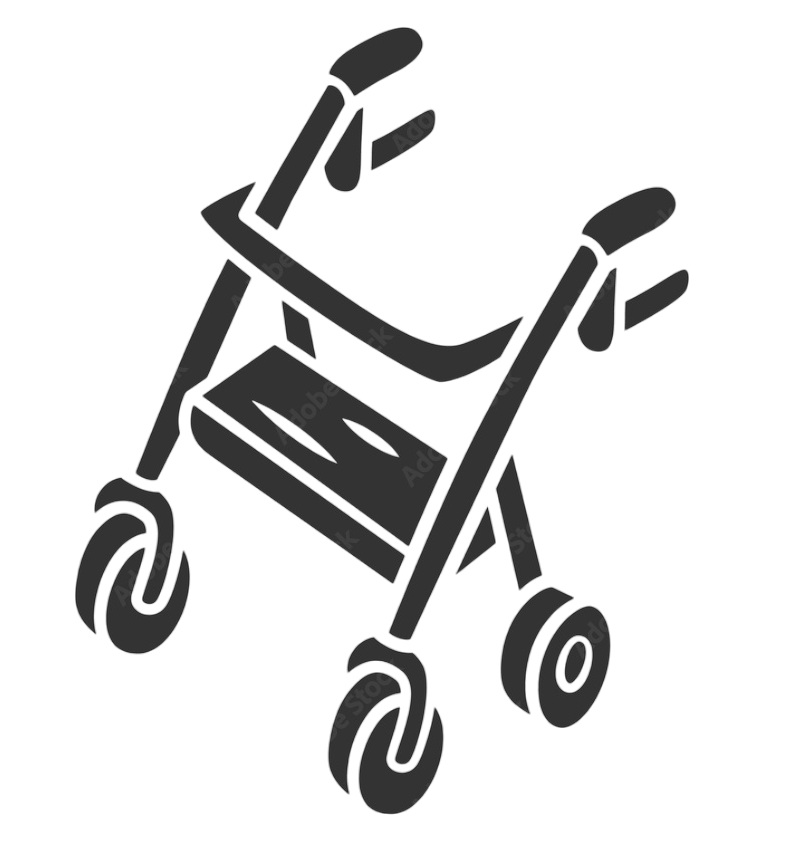
Are You Looking For Mobility & Walking Solutions ?
We are the leading manufacturer for Mobility & Walking Products In India. If you have any specific questions or if there's anything particular you'd like to discuss regarding your need, processes, target application, or any challenges you might be facing, feel free to share, and we will do our best to assist you further.
We invite you to explore our online store & connect with our team.
At Morecare, our mission is to make mobility a reality for everyone, regardless of age or ability. That's why we're committed to offering innovative Mobility & Walking aids that empower our customers to navigate the world with confidence.
Move with Confidence: Explore Our Mobility & Walking Solutions
-

Innovative Design
Ergonomic, Adjustability & Enhanced convenience for users
-

Durability and Quality
Sturdy frames reassuring customers of long-lasting performance
-

Customization Options
Options to meet individual needs and preferences
-

Safety Features
Adherence to safety standards to provide peace of mind during use
-

Versatility and Multi-functionality
Designed To Serve Multiple Purposes
-

Customer Support and Warranty
Responsive customer service - Generous warranty terms.
-
Four-Wheels Upright Training Walker for Disabled, Kids & Teens - Adjustable Folding Progressive Mobility Aid with Removable Seat (Tulip)
Regular price INR. 9,000.00Regular priceUnit price / per -
Morecare Multi Function Adult Standing Walker For Gait Rehabilitation With 8 Wheels
Regular price INR. 24,000.00Regular priceUnit price / per -
Morecare Lightweight Foldable Aluminum Wheelchair for Cerebral Palsy Kids
Regular price INR. 25,000.00Regular priceUnit price / per -
Freedom Foldable CP Wheelchair For Adults (Orchid)
Regular price INR. 25,000.00Regular priceUnit price / per -
Multifunctional Modular Support-Walkers for Children with Cerebral Palsy (Frog Walker)
Regular price INR. 30,000.00Regular priceUnit price / per -
Morecare Height Adjustable Standard Walker with Cerebral Palsy Gait Support
Regular price INR. 5,000.00Regular priceUnit price / per -
MORECARE C.P. Walker for Kids and Children with Seat and Scissors Gait Prevention Bar (Cherry)
Regular price INR. 6,000.00Regular priceUnit price / perINR. 12,000.00Sale price INR. 6,000.00Sale -
MORECARE Axillaris Walking Aid for Cerebral Palsy and Hemiplegia - Kids Walker ( Gulmohar )
Regular price INR. 12,000.00Regular priceUnit price / per -
MORECARE Adult CP Walker and Gait Trainer (Hemi-Plegia Walker) - Lotus
Regular price INR. 11,000.00Regular priceUnit price / perINR. 16,000.00Sale price INR. 11,000.00Sale -
Foldable CP Child Walker for Boys/Girls - Adjustable Pediatric Walker with Wheels. (Daisy)
Regular price INR. 5,000.00Regular priceUnit price / per -
Pediatric High-Back Wheelchair for Children with Cerebral Palsy (Bluebell)
Regular price INR. 25,000.00Regular priceUnit price / per -
Morecare Telescopic Aluminum Wheelchair Ramp for Stairs - 5 Ft
Regular price INR. 18,000.00Regular priceUnit price / perINR. 30,000.00Sale price INR. 18,000.00Sale -
Morecare Telescopic Aluminum Wheelchair Ramp for Stairs - 7 ft
Regular price INR. 22,000.00Regular priceUnit price / perINR. 33,000.00Sale price INR. 22,000.00Sale -
Morecare Electric Stand-Up Wheelchair | Model - Paramount
Regular price INR. 160,000.00Regular priceUnit price / per
Collapsible content
Read More About Morecare's Mobility & Walking
Patients may require mobility and walking aids due to a variety of conditions, injuries, or disabilities that affect their ability to move independently. Some major conditions include:
Musculoskeletal Disorders: Conditions such as arthritis, osteoporosis, or joint pain can impair mobility and make walking difficult or painful.
Neurological Disorders: Diseases like multiple sclerosis, Parkinson's disease, or stroke can affect muscle control and coordination, leading to mobility challenges.
Injuries: Traumatic injuries, such as fractures, sprains, or spinal cord injuries, may require temporary or permanent assistance with mobility to aid in recovery or adaptation to new limitations.
Chronic Pain: Chronic pain conditions, including back pain or fibromyalgia, can limit mobility and require supportive devices to alleviate discomfort and facilitate movement.
Age-Related Decline: As individuals age, they may experience a decline in muscle strength, balance, and coordination, making them more susceptible to falls and requiring mobility aids for support and stability.
Post-Surgery Rehabilitation: Following surgery, patients may experience temporary mobility limitations while recovering, necessitating the use of mobility aids to assist with mobility and prevent strain or injury.
Progressive Disorders: Progressive conditions like muscular dystrophy or ALS (amyotrophic lateral sclerosis) gradually weaken muscles over time, leading to increasing mobility difficulties and the need for supportive devices.
Cardiovascular Conditions: Conditions such as heart failure or peripheral artery disease can cause fatigue and reduced stamina, making walking and mobility challenging and requiring aids for assistance.
Balance Disorders: Inner ear disorders, vestibular dysfunction, or other balance-related conditions can affect stability and increase the risk of falls, necessitating the use of mobility aids for safety.
Post-Amputation: Individuals who have undergone amputation may require assistive devices such as prosthetic limbs or mobility aids to maintain mobility and perform daily activities.
These conditions can vary in severity and may require different types of mobility and walking aids to accommodate individual needs and preferences. By providing appropriate assistive devices, patients can enhance their mobility, independence, and overall quality of life.







